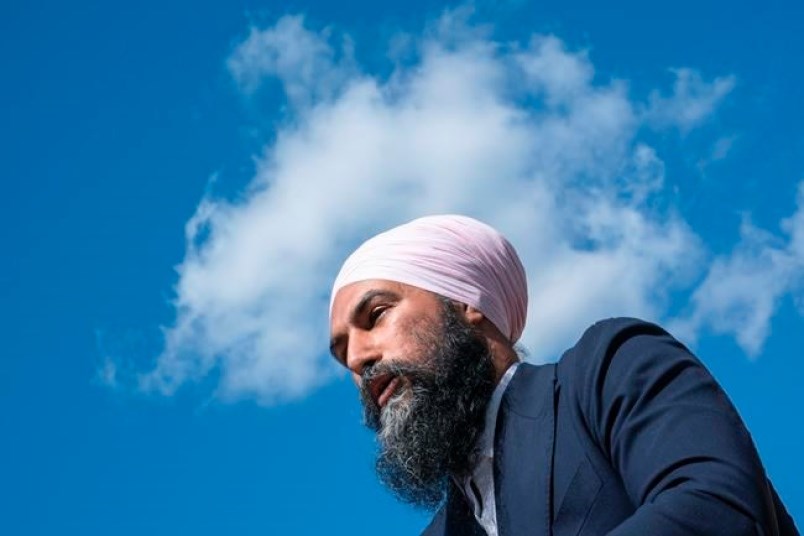The Trudeau government has struck a deal with opposition parties to swiftly approve a massive $73-billion wage subsidy program aimed at helping businesses and workers survive the economic ravages of the COVID-19 pandemic.
But Burnaby MP and federal NDP Leader Jagmeet Singh says there are still other gaps in these government initiatives that need to be closed, especially when it comes to the Canada Emergency Response Benefit.
Singh, who has been pushing for a universal benefit for all Canadians, said the motion seeking unanimous consent for the wage subsidy will also include a guarantee that the government will close some of the gaps that have left some Canadians without any help from either the wage subsidy or the previously passed CERB.
And he said he still wants Trudeau to go further and drop all the eligibility criteria for the CERB. Singh said he's heard from many Canadians who don't qualify for the emergency benefit, which opened to applicants this week, including people who are still earning a small income, students and those who were unemployed before the pandemic began.
“There are still millions of Canadians who need help but don't meet the criteria for the CERB,” Singh tweeted Saturday morning. “Today, in Ottawa, I called on the PM to fix this with two easy steps: 1) scrap the criteria 2) tell everyone who needs help to apply for the CERB. Let’s help everyone who needs it.”
Passage of legislation needed to implement the wage subsidy program was assured Saturday after Conservatives dropped their attempt to tie the bill to the longer-term question of how Parliament should function in the midst of a national health crisis.
Under the bill, which is expected to pass the Commons and the Senate and receive royal assent later Saturday, the federal government will pay companies 75 per cent of the first $58,700 normally earned by employees, up to $847 per week for up to 12 weeks. The subsidy is retroactive to March 15 and will be available to companies that lost 15 per cent of their revenue in March or 30 per cent in April or May.Finance Minister Bill Morneau said the money will begin to flow within two to five weeks, with the government working to get it started in the shortest possible time.
- With files from the Canadian Press



